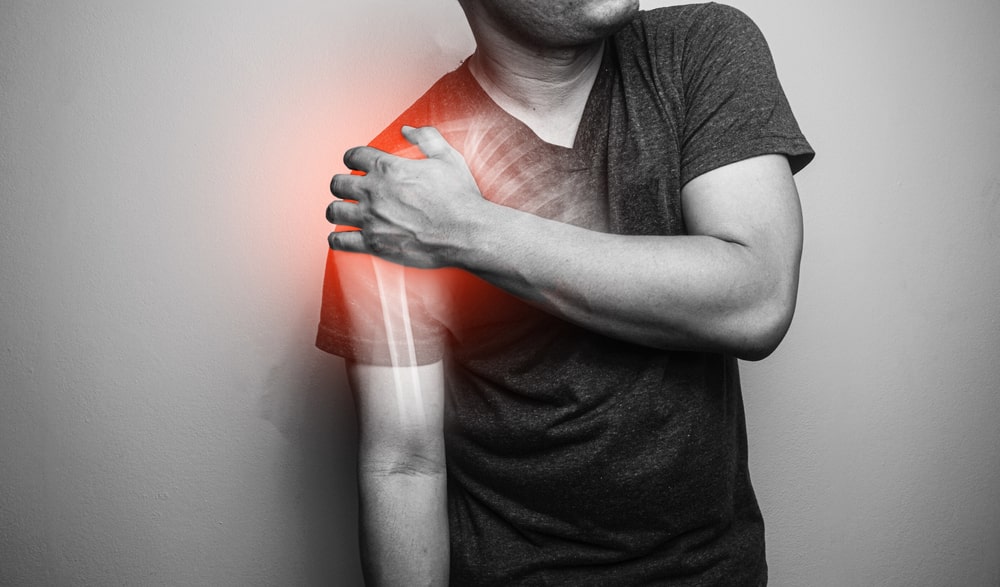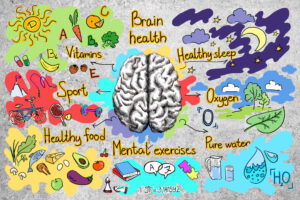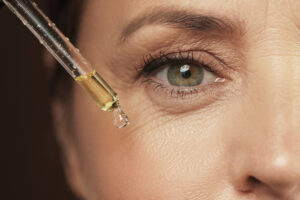Have you ever had vitamin D deficiency?
Vitamin D, also known as the sunshine vitamin, is one of the most popular nutrients your body needs. It seems like some people can’t get enough of it, and that’s because it’s truly amazing for your body: it boosts your immune system and helps it fight infections faster. And if you get sick, this amazing vitamin will help you recover faster and feel amazing sooner. Do you remember how famous this one was during the SARV-CoV-2 pandemic? It wasn’t for nothing.
Since it’s closely linked to sun exposure, many people end up suffering from vitamin D deficiency during the colder months. For example, experts discovered that over 40% of Americans don’t have enough of this vitamin. But before we talk about all the signs that you have vitamin D deficiency, we have to say more about it and understand why it’s so important for your body.
You already know that your body needs to absorb calcium for bone health and growth, but it can’t be done properly if you have a vitamin D deficiency. Moreover, this amazing nutrient can improve your muscle strength and sleep schedule, boost your mood, and keep your bones and heart healthy.
Experts recommend you take 400–800 IU, but you should talk to your doctor about how much vitamin D you need daily. Now that you know more about this and how it can help you, it’s time to talk about vitamin D deficiency.
… If you always feel tired and you don’t know why, this might be the cause! Keep reading!

1. Fatigue
If you can’t easily fall asleep or you can’t relax during the night, you’ll wake up feeling tired, and you’ll have a hard time focusing on your tasks. And you know that you can have a hard time falling asleep when you’re fatigued. It’s a vicious cycle, and the reason behind this nightmare might be vitamin D deficiency.
A 2014 study discovered that many people who suffer from chronic fatigue don’t have enough vitamin D in their bodies. You can easily reverse these effects by taking the right amount of this nutrient. If you constantly feel tired and have no idea what to do, check in with your doctor and ask them for a vitamin D test to see where your levels are.
2. Sleep disorder
While experts didn’t find a strong connection between vitamin D deficiency and sleep, they said that people who don’t get enough of this nutrient in their diets are more likely to experience sleep problems.
Some experts have noticed that vitamin D is important for healthy sleep schedules, as it helps boost serotonin production in the brain. When you don’t have enough serotonin, your body has issues producing melatonin, so it will take you longer to fall asleep.
However, vitamin D deficiency isn’t the only reason you have trouble getting your Zzzs in, which is why it is always important to check in with your doctor for additional information.

3. Sore bones and bone loss
As we’ve previously said, the sunshine vitamin is connected to bone strength, and low levels are linked to bone pain, such as discomfort in the ribs, legs, back, and joints. These symptoms are more likely to occur in older adults, as their bones are softer and weaker.
Long story short, vitamin D deficiency can affect your bone density and increase the risk of fractures. In medical terms, this condition is known as osteomalacia, and it shows up as dental abnormalities, bone pain, muscle spasms, and deformities. Other than that, a lack of vitamin D can also make you more likely to develop osteoporosis, so make sure you get that nutrient in.
4. Weak immune system
When COVID-19 entered our lives and made us panic like no other, many doctors paid even more attention to the human body’s immune system and its response to the deadly virus. Some of them concluded that vitamin D is an amazing tool for your body’s natural defense mechanism, so no wonder they recommend vitamin D supplements, like these ones, to boost your immune system.
While it won’t protect you from all the illnesses, it will lower your chances of getting a respiratory infection, such as a common cold, bronchitis, or pneumonia. So if you were wondering why you’re sick all the time, it might be due to vitamin D deficiency.
5. Aching muscles
While it’s hard to find the exact reason why your muscles ache, experts discovered that there might be a connection to vitamin D deficiency. According to an older study, roughly 70% of Americans who suffer from this issue are also vitamin D deficient.
This incredible nutrient receptor is common in nociceptors, which are pain-sensing nerve cells. The sunshine vitamin might also be involved in the pain-signaling pathways in your body, which might increase your chance of developing chronic pain.
Another study showed how a single vitamin D dosage can reduce children’s increasing pain levels by an average of 57%, and the results speak for themselves.
But there are several underlying reasons why muscles hurt. Your doctor will know exactly what to do if you seek medical guidance, so ask for help if you need it.
6. Slow wound healing
Another sign you have vitamin D deficiency is when your wounds take a lot of time to heal. Experts say that people who have low levels of this nutrient are more likely to experience prolonged wound healing in the event of surgery or injury.
A study conducted in test tubes discovered that vitamin D stimulates the creation of much-needed molecules to create new skin. Long story short, the sunshine vitamin targets inflammation by repairing wounds and treating infections.
Moreover, people who have vitamin D deficiency and diabetic foot ulcers might experience difficulties healing their wounds. However, experts need to run more tests to have a better understanding of how this process works.

7. Hair loss
Even though we’re used to blaming stress for hair loss, severe hair loss is a sign of vitamin D deficiency. This nutrient helps with hair growth, so it’s one of the most important things to include in your diet.
If you have vitamin D deficiency, you’re more likely to develop an autoimmune condition called alopecia areata, which causes drastic hair loss. While many other factors cause hair loss, you can try to remedy this by taking the right vitamin D supplements. Be patient; results won’t happen overnight, and it might take several months to see changes.
8. Heart issues
Did you know that vitamin D deficiency can cause several heart-related problems? For example, not having enough vitamin D in your body can contribute to high blood pressure. This is because the magical nutrient is important for keeping your blood vessels healthy and boosting your vascular function.
When you give your body the right amount of vitamin D, your blood pressure will be lower and your blood vessel walls will relax. On the other hand, severe vitamin D deficiency can increase your risk of heart disease, such as heart attacks, high blood pressure, and strokes.
Don’t forget that the sunshine vitamin is wonderful for hosting your heart’s pumping functions and therefore helping you manage your heart problems better. If you notice any of these symptoms and don’t know what you should take or how much, it’s always a good idea to schedule an appointment with your doctor and solve this issue.
What do you think about this article? Have you ever experienced a vitamin D deficiency? What did you do to reserve the effects? Let us know in the comments below! If you enjoyed reading this article and you’d like to check out something else from Golden Years Bliss, here’s a good post for you: Retirement Frugality Warning: 12 Signs You’re Being TOO Thrifty



















